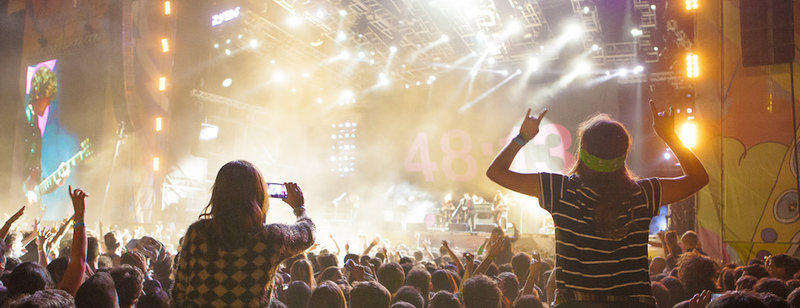Sign up for the daily CJR newsletter.
How do you like your “paloozas”? Do you like them as two words? Then for you, there is “Poutine Palooza,” “Paddle Palooza,” “Science Palooza,” “Paper Plane Palooza,” and “Preschool Palooza.”
Do you like your “paloozas” with a hyphen? Take your pick from “Opera-Palooza!” “Las Vegas party-palooza,” or “campaign-palooza.” For automobile aficionados, there’s “infotainment-palooza” (for a car’s technology), “chrome-a-palooza” (for detailing on cars) and “Nissan Truck-a-Palooza!” (self-explanatory, we hope).
Like your “paloozas” with no punctuation? We’ve got “iPadPalooza,” “DancerPalooza,” and “ITPalooza.”
Perhaps you’re more traditional and believe that made-up words should at least be connected with hyphens. You can attend “Advice-A-Palooza,” “Hatch-a-Palooza,” “Eat-a-palooza,” “Seuss-a-palooza,” or “Adopt-a-palooza.”
If you’re a strict traditionalist and want all your neologisms to replicate the original, we’ve got lots for you as well. “Puzzlepalooza,” “Frontapalooza”(where networks and studios premiere their new shows), “‘Wine’aPalooza” (yes, they put quotation marks within their “palooza”), “Teachapalooza,” and even “#Sexapalooza.” Use your imagination.
Nearly all of appeared in just in the past week or so. Look around a little more, and you’ll have “paloozas” out the wazoo. Headlines writers seem particularly fond of them.
All these trace, of course, to “lollapalooza,” which itself has almost as many spellings as its spawn. The Oxford English Dictionary, whose main entry is “lallapaloosa,” defines it as “Something outstandingly good of its kind.” It says it is a “fanciful formation,” traceable to a 1904 citation: “Saturday night we had our final parade with the fireworks finish, and it was a lallapalootza!”
The Merriam-Webster Dictionary traces it to 1896, though it gives no citation. The Concise New Partridge Dictionary of Slang has a second definition, spelled “lollapaloosa”: “in bar dice games, a roll that produces no points for the player.” It traces that usage to the US in 1971, again without a citation. The 1962 printing of Webster’s New World Dictionary, College Edition says it’s also spelled “lollypalooza,” but Webster’s New World College Dictionary fifth edition lists just “lollapalooza” and “lollapaloosa.” Its definition is “something or someone very striking or exceptional.”
The “lollapalooza” spelling is the most common, for many reasons. Spelling it that way puts the emphasis on the “ooze,” which both makes it more fun to say and makes it sound more like a guy from Brooklyn than a Boston Brahmin.
The lollapalooza of lollapaloozas is the “Lollapalooza” festival started in the 1990s (and frequently spelled “Lollapaloosa” in the early days).
The “palooza” ending has come to mean a festival, a fast-paced, wild event, providing a large quantity of whatever is on offer, if not an overdose. Among its definitions in The Urban Dictionary, the cleanest is “an all-out crazy party; partying at one place with a ton of people like there’s no tomorrow.”
“Palooza” seems well on its way to replacing the “-athon” suffix, though you can still find a “swimathon,” “telethon,” “saleathon,” and the ubiquitous “Toyotathon.” But where the “athon” suffix seems to indicate length (its derivation, of course, is “marathon,”) a “palooza” indicates more of a frenzy. Compared to an “Eat-a-Palooza,” an “Eat-a-Thon” sounds like a snooze.
What about all those spelling, capitalization, and punctuation variations? Well, they’re all made up, so it really doesn’t matter.
Dictionaries haven’t caught up with the seeming change to “lollapalooza” or added the independent suffix “-palooza.” But we’ll bet that any update will be a doozy.
Has America ever needed a media defender more than now? Help us by joining CJR today.







